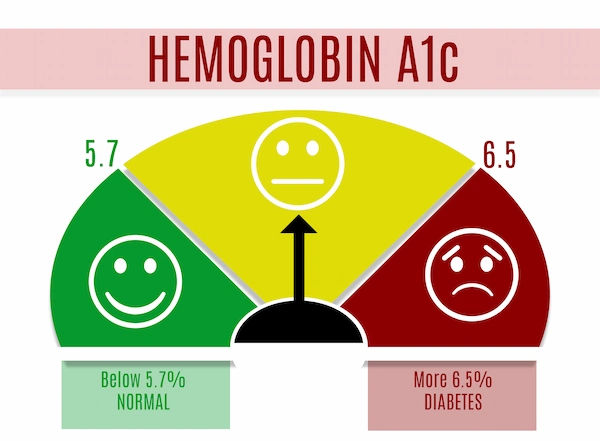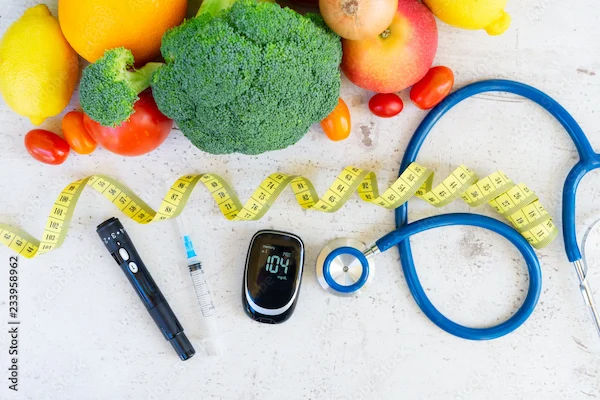Alcohol And Diabetes
Understand the impact of alcohol on diabetes management. Learn safe drinking guidelines and how to enjoy alcohol without compromising blood sugar control.

Written by Dr Shreya Sarkar
Last updated on 13th Jan, 2026
For those living with diabetes, managing blood sugar levels is crucial to maintaining overall health and preventing complications. Many individuals with diabetes often have questions about alcohol consumption — whether it’s safe, how it impacts blood sugar levels, and if it can be part of a healthy lifestyle. While the relationship between alcohol and diabetes can be complex, understanding the effects of alcohol on blood sugar, medications, and long-term health can help you make informed choices.
This article will provide you with key insights into how alcohol affects people with diabetes, offer practical guidelines for drinking safely, and highlight important factors to consider for those with diabetes who wish to drink.
Understanding Diabetes and Its Impact on the Body
Before diving into the effects of alcohol on diabetes, it’s important to understand the basics of the condition. Diabetes is a chronic disease that affects how your body processes blood sugar (glucose). There are two main types:
Type 1 Diabetes: This form of diabetes occurs when the body's immune system attacks and destroys the insulin-producing cells in the pancreas. People with Type 1 diabetes must take insulin for life.
Type 2 Diabetes: In Type 2 diabetes, the body either doesn’t produce enough insulin or becomes resistant to the insulin it produces. This type is often linked to lifestyle factors like poor diet, physical inactivity, and obesity.
The goal of diabetes management is to keep blood sugar levels as stable as possible. This involves a combination of healthy eating, physical activity, monitoring blood sugar levels, and using medications (such as insulin or oral medications) when needed.
Alcohol uniquely affects blood sugar levels. The body processes alcohol through the liver, which is also responsible for regulating blood sugar. When you drink alcohol, the liver works to metabolise the alcohol instead of focusing on maintaining steady blood sugar levels. This can lead to fluctuations in blood sugar, which is particularly concerning for those with diabetes.
Short-Term Effects of Alcohol on Blood Sugar
Low Blood Sugar (Hypoglycemia): In some cases, alcohol can lower blood sugar levels, especially if you haven’t eaten enough or are drinking on an empty stomach. This is because the liver is busy processing alcohol and may not release glucose into the bloodstream as it normally would. This can result in hypoglycemia, which can be dangerous if not addressed immediately. Symptoms of hypoglycemia include shaking, dizziness, confusion, and even fainting.
High Blood Sugar (Hyperglycemia): On the other hand, alcohol can also raise blood sugar levels, especially if it’s consumed in large quantities or mixed with sugary mixers (like soda or juice). Alcohol itself contains calories, and drinks like sweet wines, cocktails, and beer can be high in carbohydrates, which can elevate blood sugar levels.
Alcohol and Diabetes Medications
When you have diabetes, managing blood sugar typically involves medications like insulin or oral medication (such as metformin, sulfonylureas, or DPP-4 inhibitors). These medications work by either increasing insulin production or improving the body’s use of insulin. However, alcohol can interfere with how these medications work:
Insulin: Since alcohol can lower blood sugar levels, drinking may require adjustments in your insulin dosage to avoid hypoglycemia. For people who take insulin, especially long-acting insulin, timing and dosing adjustments may be needed to prevent lows.
Sulfonylureas: These medications help stimulate the pancreas to release more insulin. Combining alcohol with sulfonylureas can increase the risk of hypoglycemia because alcohol can enhance the effects of the medication.
Metformin: This widely-used medication helps control blood sugar by reducing glucose production in the liver and improving insulin sensitivity. Drinking alcohol excessively while on metformin can increase the risk of lactic acidosis, a serious and rare complication. Therefore, people taking metformin should be cautious with alcohol consumption.
General Guidelines for Alcohol Consumption in Diabetes
In Diabetes, it is essential to approach alcohol consumption with caution and moderation. The following guidelines can help ensure alcohol is consumed safely while managing diabetes effectively.
1. Maintain Moderate Alcohol Consumption
Moderation is key when it comes to alcohol intake. It is generally recommended that individuals with diabetes limit their alcohol consumption to:
One drink per day for women
Two drinks per day for men
A standard drink is defined as:
12 ounces of beer (preferably light beer)
5 ounces of wine (dry wines are recommended)
1.5 ounces of distilled spirits (e.g., vodka, whiskey, rum, gin, tequila)
2. Avoid Drinking on an Empty Stomach
Drinking alcohol on an empty stomach can lead to quicker absorption, significantly increasing the risk of hypoglycemia (low blood sugar). To mitigate this risk, always consume alcohol alongside a balanced meal or snack that contains carbohydrates. Ideal options include whole-grain crackers, a small sandwich, or a piece of fruit. This helps stabilise blood sugar levels and prevents sharp drops.
3. Opt for Low-Carb, Low-Sugar Alcohol Options
Alcoholic beverages vary significantly in carbohydrate and sugar content. Some drinks, particularly sugary cocktails, can cause blood sugar spikes. To reduce this impact, choose lower-carb, diabetes-friendly options, such as:
Dry wines (both red and white)
Light beers
Clear spirits (e.g., vodka, gin, tequila, rum) paired with calorie-free mixers, such as soda water, seltzer, or diet tonic.
Avoid sugary mixers like soda, fruit juices, or syrups, which can rapidly elevate blood glucose levels. Always check labels and be mindful of the carbohydrate content in the drinks you choose.
4. Regularly Monitor Blood Sugar Levels
Alcohol can affect blood sugar levels unpredictably, and its effects can be difficult to track, especially in social settings. To ensure safe consumption, it is critical to monitor your blood glucose levels before, during, and after drinking. This allows you to observe how alcohol influences your blood sugar and make any necessary adjustments to your food intake, medication, or physical activity.
5. Stay Hydrated to Prevent Dehydration
Alcohol consumption can lead to dehydration, which, in turn, can affect blood sugar regulation. To avoid dehydration, it is important to drink plenty of water alongside your alcoholic beverages. Staying hydrated helps flush alcohol from your system more effectively and may also help prevent a hangover, which could negatively impact blood sugar control the following day.
6. Recognize and Address Symptoms of Low or High Blood Sugar
The symptoms of hypoglycemia (low blood sugar) can closely resemble the effects of alcohol intoxication, including dizziness, confusion, and shakiness. It is essential to remain aware of how your body feels when drinking and to have a plan in place for managing blood sugar fluctuations. Always carry a source of fast-acting carbohydrates, such as glucose tablets, juice, or snacks, to treat hypoglycemia promptly if it occurs.
Conclusion
Alcohol doesn’t have to be off-limits for people with diabetes, but it must be consumed responsibly and with consideration of how it interacts with your body and medications. By following the recommended guidelines and consulting with your doctor, you can safely include alcohol in your lifestyle without compromising your blood sugar control.
Remember, the key is moderation, monitoring, and understanding the effects of alcohol on your blood glucose levels. With a little preparation and mindfulness, you can enjoy a drink while keeping your diabetes well-managed. Always prioritise your health, listen to your body, and make sure to monitor your blood sugar regularly.
Consult Top Endocrinologists
Consult Top Endocrinologists

Dr. Anand Ravi
General Physician
2 Years • MBBS
Bengaluru
PRESTIGE SHANTHINIKETAN - SOCIETY CLINIC, Bengaluru

Dr. E Prabhakar Sastry
General Physician/ Internal Medicine Specialist
40 Years • MD(Internal Medicine)
Manikonda Jagir
Apollo Clinic, Manikonda, Manikonda Jagir
(150+ Patients)

Dr. Arunava Ghosh
General Physician/ Internal Medicine Specialist
10 Years • MBBS,MD(GENL.MED.),DM(ENDOCRINOLOGY)
Kolkata
VDC Clinic, Kolkata

Dr. Shruthi B
Endocrinologist
20 Years • MBBS,MD ( GEN MED) DM (ENDOCRIONOLOGY)
Bengaluru
Apollo Clinic, JP nagar, Bengaluru
Aditya Singh
Endocrinologist
8 Years • MBBS
Bengaluru
Apollo One Electronic City, Bengaluru


